How Baldur’s Gate III devs are crafting the definitive Dungeons & Dragons video game
Bringing D&D to life

Sign up for breaking news, reviews, opinion, top tech deals, and more.
You are now subscribed
Your newsletter sign-up was successful
The road to Baldur’s Gate III has been a long one. The original Baldur’s Gate was developed way back in 1998, seeking to distil the magic and wonder of Dungeons & Dragons table top gameplay into a video game setting.
Baldur’s Gate and its sequel Baldur’s Gate II: Shadows of Amn were both runaway successes, and developers BioWare and Black Isle Studios originally planned for a third title to come out in 2003, but the game was cancelled when Black Isle was shut down after facing financial crisis.
The intellectual property rights for Baldur’s Gate have been hotly sought after in the years since, but ultimately fans had to wait over a decade to return to the Sword Coast, with the Baldur's Gate I and II enhanced editions launching in 2012 and 2013.
After the phenomenal success of Larian Studios’ own Baldur’s Gate-like title, Divinity: Original Sin II, released in 2017, it came as no surprise to players that Larian had been picked by D&D owners Wizards of the Coast to at last expand on the Baldur’s Gate universe.
With the Early Access build of Baldur’s Gate III recently hitting Steam, we spoke to the founder and lead designer of Larian Studios Swen Vincke to find out how they’re crafting their own D&D adventure while managing fan expectations and respecting these classic titles in role playing and video game history.
Building on a beloved world
"Obviously we knew going in that we’d have to make changes that wouldn't be universally loved," Vincke told us, "but that’s what happens when you touch something that’s been around so long. We’ve tried to hit on the same themes story-wise, and there are several links to the story of the original games that we’ve not showcased yet in the Early Access build, but essentially we’ve just done our best to do what Baldur’s Gate did in those early days - bring D&D to life."
“The team has a lot of D&D fans, like really a lot of them, so being able to work with the world of Dungeons & Dragons was really motivating for us," says Vincke, speaking of why the team at Larian sought the Baldur’s Gate licence in the first place.
Sign up for breaking news, reviews, opinion, top tech deals, and more.
“A lot of the team’s first RPG was actually Baldur’s Gate, so for them this was the opportunity to work on a game in the series that caused them to pursue even becoming a game designer in the first place."
"We’ve just done our best to do what Baldur’s Gate did in those early days - bring D&D to life."
Swen Vincke, Larian Studios
But with Wizards of the Coast understandably wanting to ensure the game’s rights were in the safest of hands, it took some time for the D&D owners to come around.
"So, I approached them for the first time after we finished the first Divinity: Original Sin," explains Vincke, “It was a 'no', but they were curious what we would do with the licence. Then, quite a lot later, as we were putting the final touches on Divinity: Original Sin II, we got a call from the team at Wizards asking us to head over to Seattle. They presented us a pitch they were preparing to offer up to management. That pitch was essentially everything we had talked about in that first meeting. They asked if we still wanted to do it, and of course I said yes."
The whole design team - already huge fans of the series - began playing Baldur’s Gate I and II again, re-familiarising themselves with the world and storylines. They also set about delving into the huge D&D back catalogue, cherry picking the most interesting areas of the game’s lore that might work for Baldur’s Gate III.
Of course, as with any game series with such a storied history, there are many fans who’ve spent countless hours in those original games and feel a protective emotional connection to them.
We asked Vincke how the team is managing die-hard far expectations, as well as enticing a new audience to Baldur’s Gate: "Well we’re basically trying to make the game that we’d like to play," he says. "Given that all of us are very big Baldur’s Gate fans, we think we can make a game that works for all the fans out there."
"Baldur’s Gate was the definitive D&D game of it’s generation
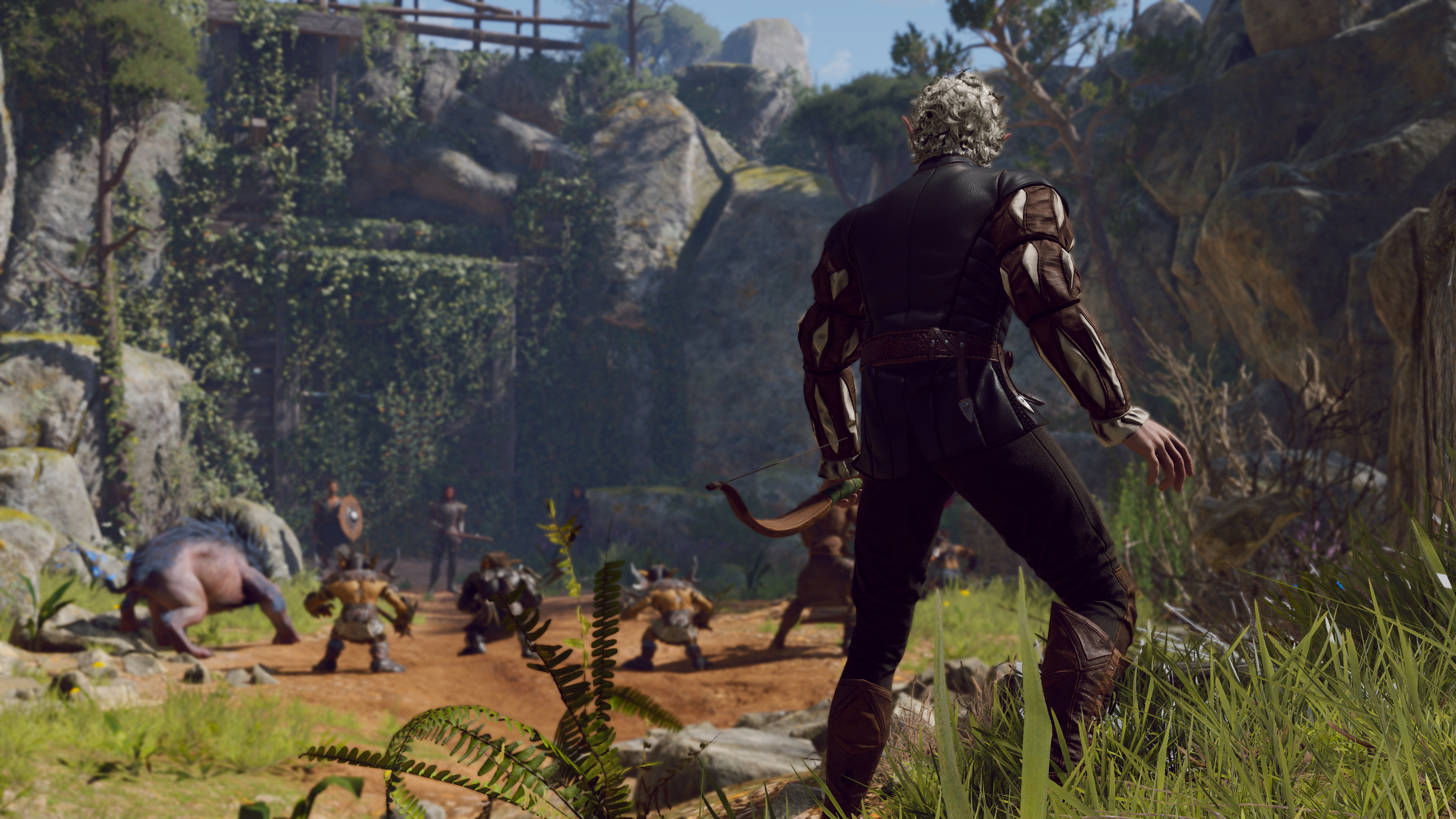
Translating D&D into a video game for this generation
There have been plenty of games that use Dungeons & Dragons as a setting or inspiration for their world, and even more that use some derivation of its ruleset for their mechanics.
D&D arguably has had as much of an impact on the video game world as it has on the tabletop, but few games attempt so literally to place it’s systems in digital form.
Even Baldur’s Gate as a locale doesn't just exist as a video game setting. Many players will be just as familiar with the citystate and the surrounding Sword Coast from D&D campaign books.
So is Vincke concerned that players will already have their fixed idea of what the game should be?
"Baldur’s Gate was the definitive D&D game of it’s generation, and that’s what we’re trying to create," says Vincke, "but we’re also trying to make a good video game first and foremost, rather than a strict D&D adaptation.
"To put it in D&D terms, we’re your dungeon master and this is our campaign that we’re running, so there will be our own flavour and house rules. We’re bringing you one particular visualisation of this world, but that doesn't mean that there cannot be others.
"There are a couple of campaigns where Baldur’s Gate as a location shows up - Murder in Baldur’s Gate was the first that really went into detail about the city, and Baldur’s Gate: Descent into Avernus, which gives an update. We’re basing our visualisation on what’s described inside the books, though we did get a bit of artistic license from Wizards."
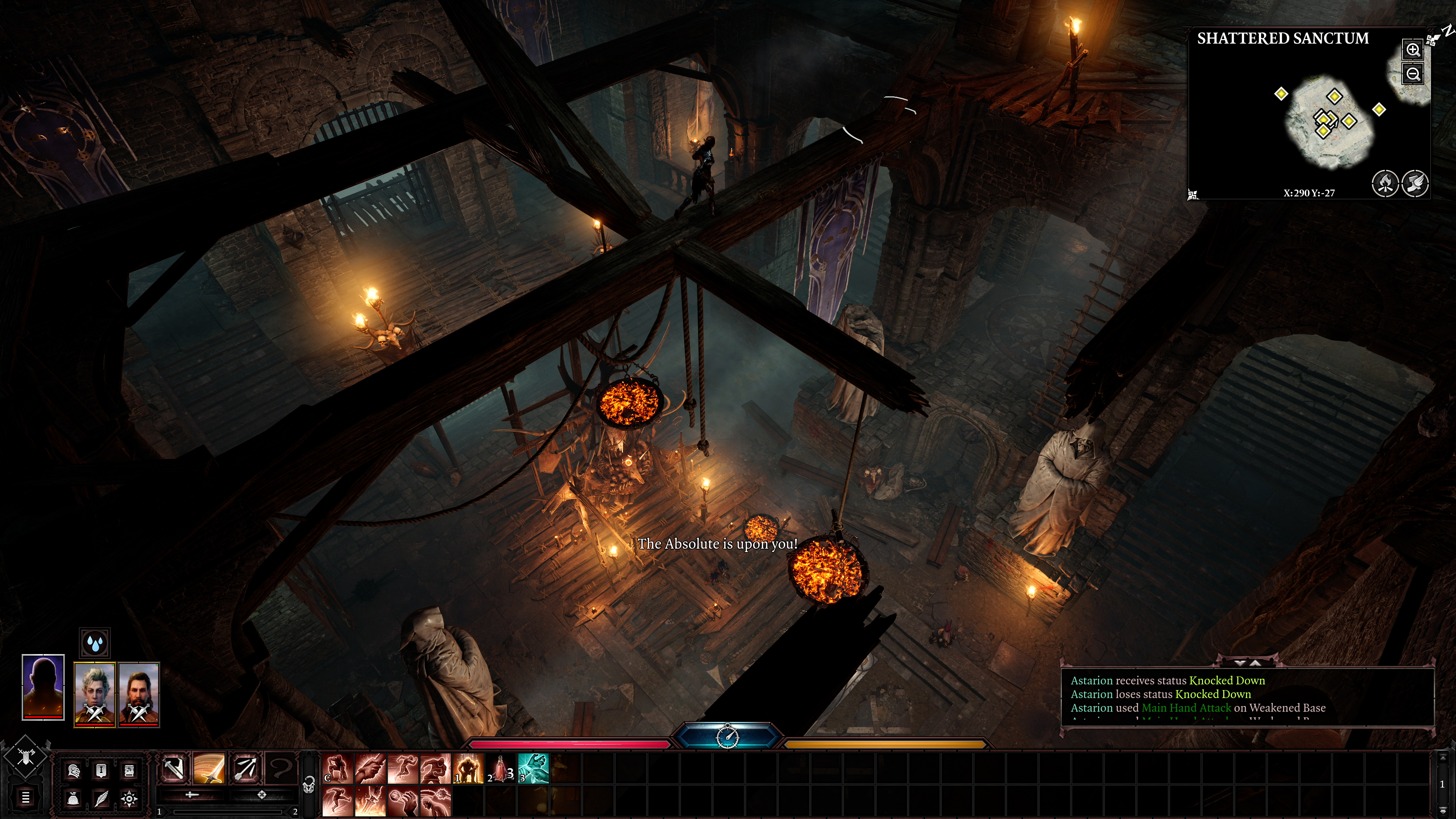
Often developers draw from real life when trying to make a location seem more realistic, but as the Larian team were researching how the Sword Coast could look in-game, the team hit upon a surprising geographical goldmine.
"It's funny, we were trying to figure out how the Sword Coast should look, and one of our artists said we should go do some photogrammetry along the coast of Portugal, as he thought it’d be a good fit. But as he was doing his research, he looked at the emblems of one of the Portuguese cities and it was the same as the emblem you find in the books for Baldur’s Gate. He actually accidentally discovered where the Sword Coast was in the real world. So for the game we just scanned the real-life Sword Coast!"
Tabletop ruleset, digital world
One of the most beloved aspects of Dungeons & Dragons is how adaptable the system is. The rules can be bent and tweaked based on the whims of the dungeon master and players, but video games have to play by a stricter set of rules. The reality of design software means there will always be a limit on what is possible.
It raises the question of how far a game can actually go in replicating that true D&D experience.
"We’re still experimenting, but a lot of rules translated really well," says Vincke. "We had to make a few tweaks and modifications to make them work with a video game, but things like having an action, movement and bonus action in a combat phase worked well.
"Of course there are the finer details, like how specific spells and actions work, and we hit a few limitations with the D&D ruleset where we had to make tweaks. One example is the Fighter class. In the tabletop game it’s basically a tutorial class to teach people how to play D&D, but in a video game you don’t want it to be boring, so we had to add in a lot more player choice in combat.
"We hit a few limitations with the D&D ruleset where we had to make tweaks"
“With things like this we just try to make them make sense while making them fun at every step of the way. If we can stick to the rules then we stick to the rules, but if we need to modify them to make them more fun, or if they don’t work in a video game setting, then we’ll adapt them. The video game always wins in the end.W
One particularly stylistic choice in Baldur’s Gate III that helps emulate that tabletop feel is the prominence of dice rolls. Many video games have tried and failed to implement dice rolling systems that players find fun, but also respect enough to run with, rather than endlessly loading old save files.
"We tried to make sure that regardless of what the dice roll was, there was always going to be a consequence that made sense. Sometimes bad dice rolls are more fun than if you’d succeeded. That essentially was our approach, even though it meant a lot more work for us, because we had to put in a lot more permutations."
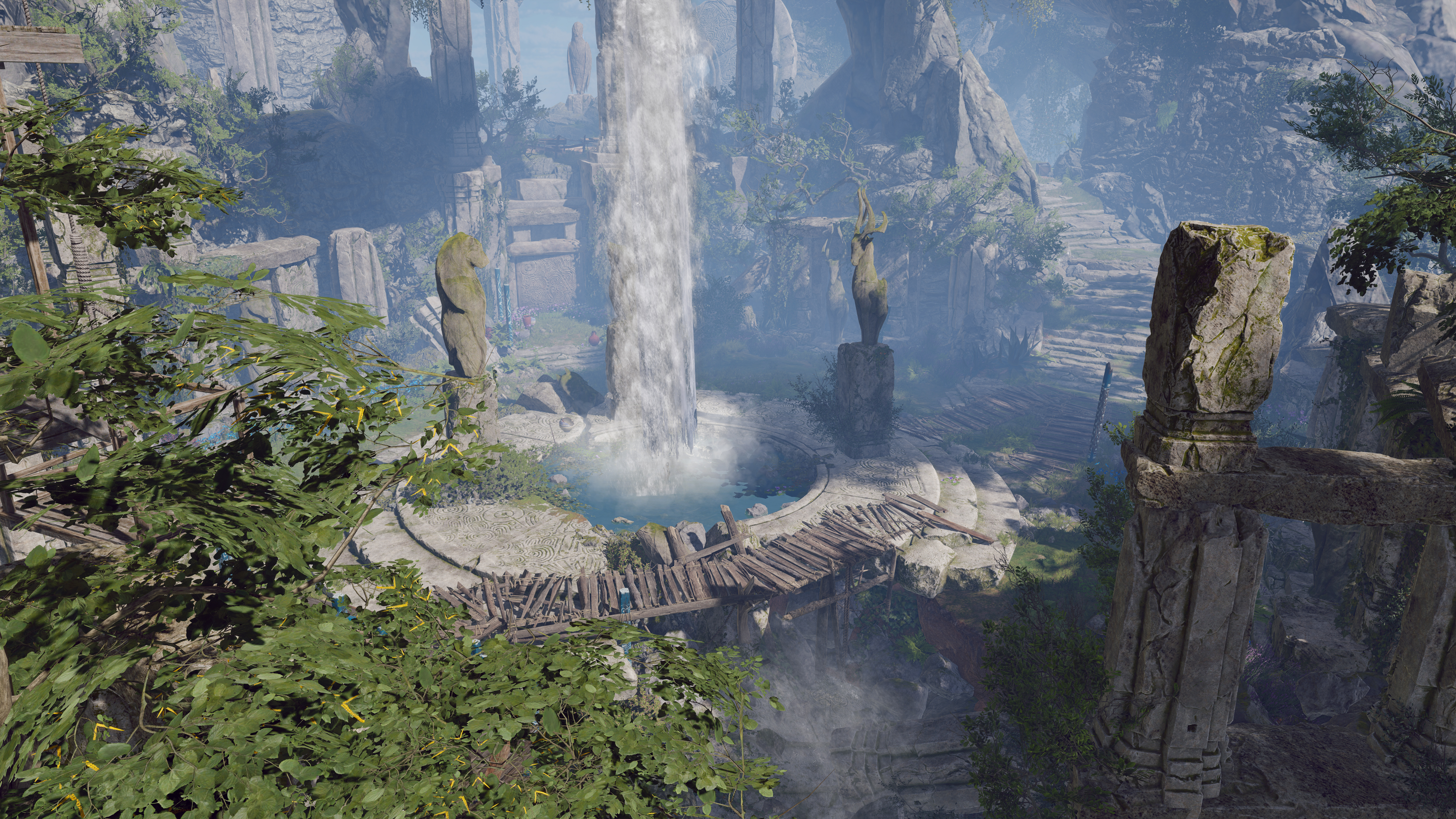
"There are several scenes that are quite weighty. You could diffuse a combat encounter, or lose your life or even an eye based on a dice role. One of the core ideas behind the game is going with the dice and seeing where they take you. After all, retrieving the body of a friend from hostile territory so you can resurrect her is an actual adventure just on its own."
Early Access surprises
Now the game is actually in the hands of the player base, albeit in a much more limited form than what we can expect when the full release is launched, we have a much clearer picture of the direction Larian are taking Baldur’s Gate III.
But just how different will that end-product be from the build we currently have access to? And how does the team at Larian feel about having such an early version of the game open to public scrutiny?
"Well, I mean obviously we’re super happy, but we didn’t expect it to be this large, so the pressure is a little higher than we originally expected. But the plan is still the same - we’re going to incrementally improve the Early Access version to give players an increasingly better game, taking into account their suggestions.
"The team has been collating everything on Reddit and the forums since the launch. We tried to be super up front and open about just what Early Access meant before we released it, so I think and hope everyone dived in knowing what to expect."
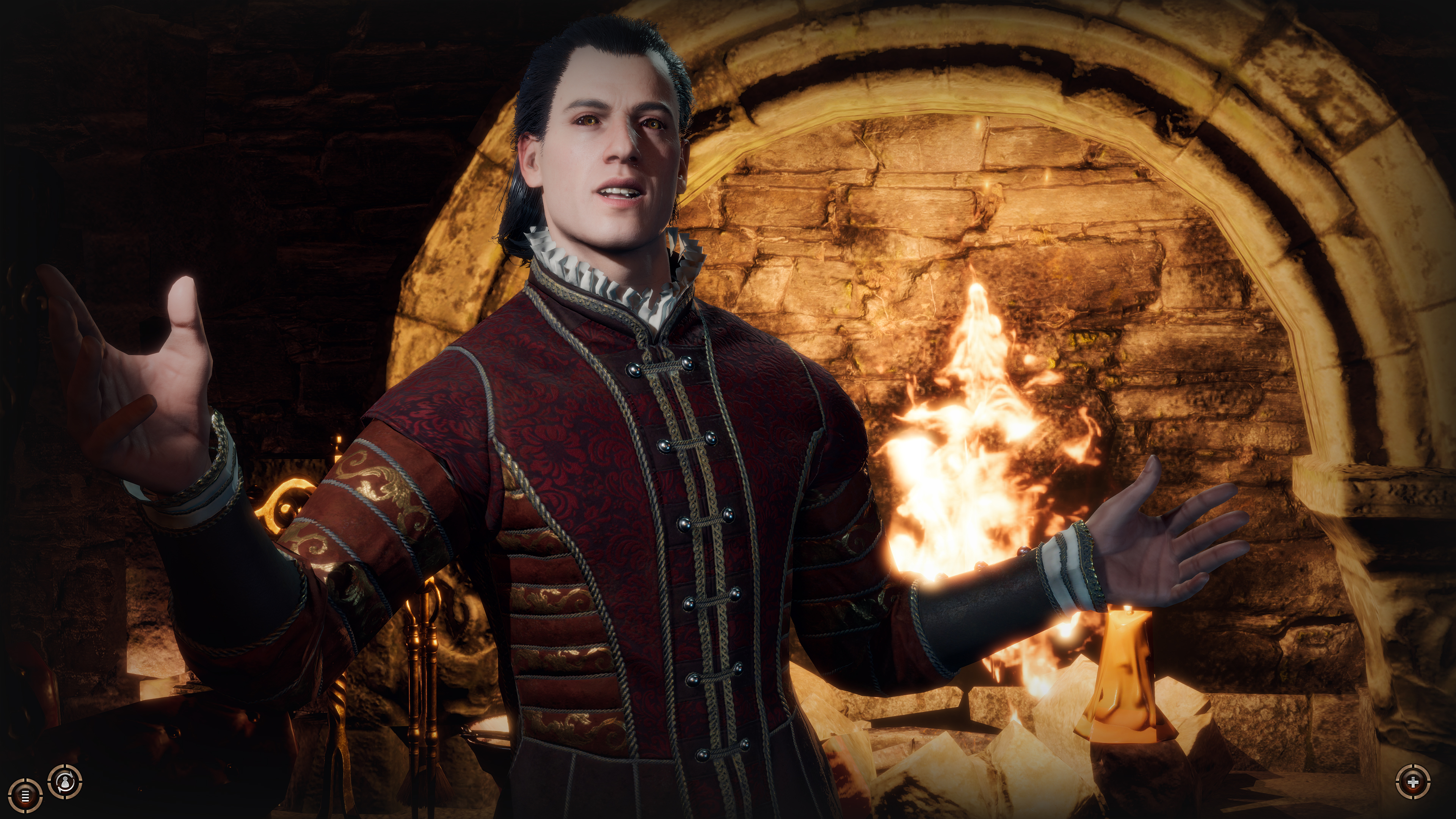
Developers can never really understand how their game will be perceived until it’s in the hands of the public, or even how the game will be played.
Early Access has allowed Larian to open up a window into the minds of the playerbase, and see just how people are exploring their world. We questioned Vincke on what surprised him.
"There were two things that struck me at first," he says, "I underestimated that a group of players would really have that hard a time with the dice. I was reading a comment the other day from a guy convinced the game was horribly bugged because he rolled a miss in combat eight times in a row. I really sympathise with that guy, but you’ve got to say ‘well, that’s my luck!’ But the game is intended to be played by lots of types of people, so we need to put in something that helps these players deal with the rolls. Loaded dice as an option is an obvious solution we could work in, but there’s multiple ways to handle it.
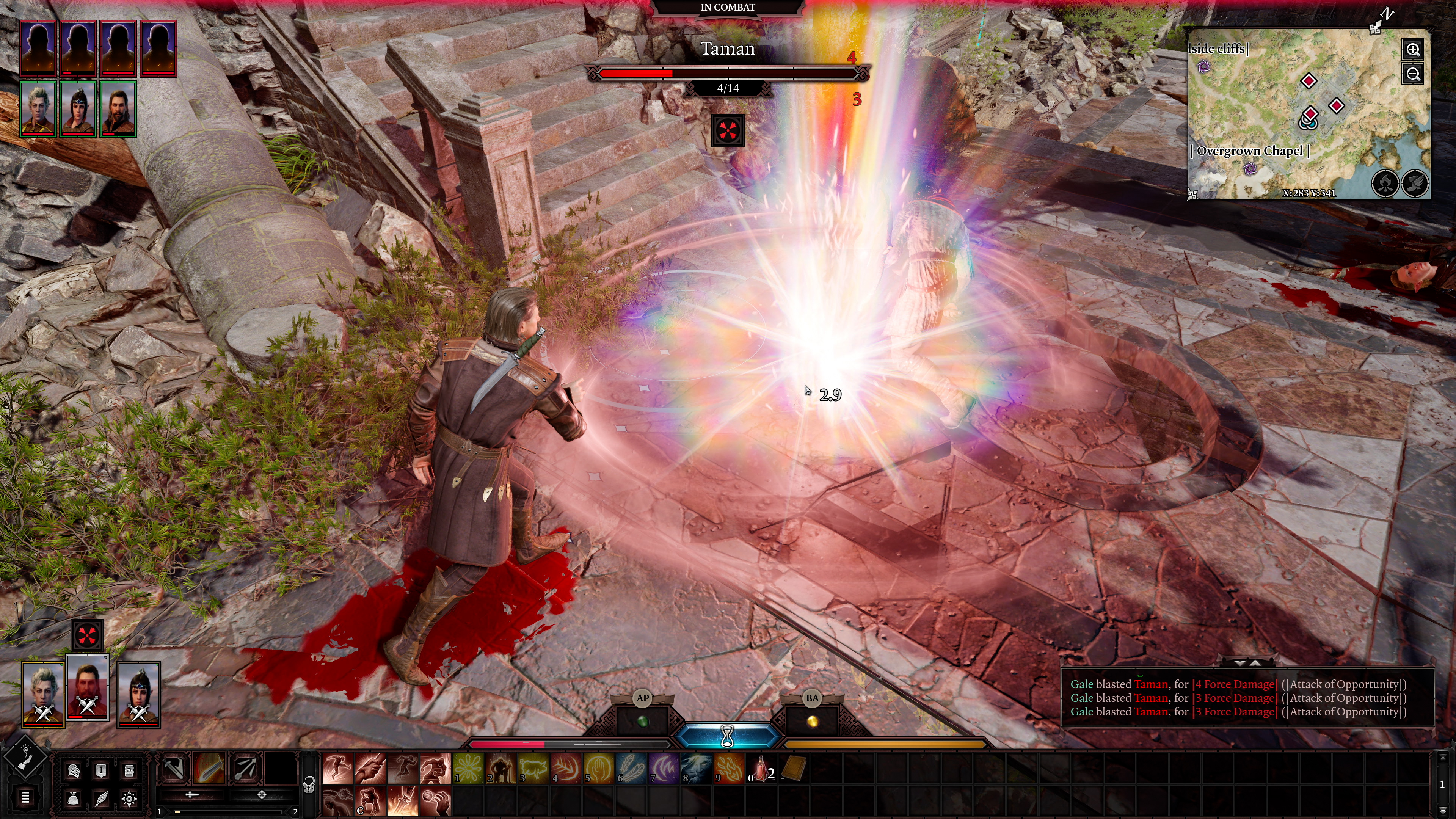
"The other thing that surprised me, in hindsight could’ve been predicted. We put in the evil and neutral NPC companions first, so there was a bit of backlash from people complaining that all the characters were so haughty and snarky, but it was really just those characters acting as their natural selves. I didn’t realise it would be such a thing, but in reality we just hadn’t put the good characters in yet. There’s a much wider variety, and hopefully it’ll settle down in time, but it’s interesting the conclusions people draw when there’s only a small selection."
The development team has a monumental task ahead of them with Baldur’s Gate III, but if the overwhelming Early Access sales are anything to go by, players have embraced their vision and are ready to explore the world of Faerûn alongside Larian Studios.
Whether they’ll succeed in their mission to craft the definitive D&D video game experience remains to be seen, but it’ll certainly be an adventure either way.
- These are the best PC games of 2020